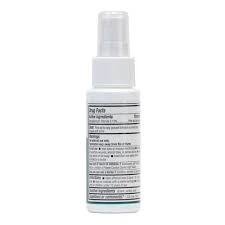Effective Solutions for Preventing Limescale Buildup in Plumbing Systems and Appliances
Understanding Limescale Inhibitors Protecting Your Home’s Water Systems
Limescale, a chalky deposit primarily composed of calcium carbonate, is a common problem in many households around the world. It typically forms in areas with hard water, which contains a high concentration of minerals. While limescale itself is not harmful to human health, it can lead to a host of inconveniences and costly repairs. This is where limescale inhibitors come into play, offering a practical solution to mitigate the negative effects of hard water.
The Nature of Limescale
Limescale builds up when hard water is heated, causing calcium and magnesium ions to precipitate out and form solid deposits. This can occur in various home appliances, such as kettles, water heaters, and dishwashers, as well as in pipes and fixtures. Over time, the accumulation of limescale can lead to reduced efficiency of these appliances, increased energy costs, and even system failures. In the worst-case scenario, it can necessitate expensive plumbing work or replacements.
How Limescale Inhibitors Work
Limescale inhibitors are chemicals or systems designed to prevent or reduce the formation of limescale. They work through various mechanisms, primarily by altering the physical and chemical properties of the minerals in hard water. Here are some common types of limescale inhibitors
1. Chemical Inhibitors These include phosphates, polyphosphates, and citrates that bind with calcium and magnesium ions in water. By preventing these ions from crystallizing, they reduce the likelihood of limescale formation. While effective, chemical inhibitors need to be handled with care as they can have environmental implications if not managed correctly.
2. Physical Inhibitors Products such as magnetic or electric descalers claim to alter the physical properties of water through electromagnetic fields. This method is often viewed with skepticism and requires further research to validate its long-term efficacy.
3. Salt-Free Systems Unlike traditional water softeners that replace calcium and magnesium ions with sodium, salt-free systems use various technologies (such as template-assisted crystallization) to modify the structure of the minerals, preventing them from sticking to surfaces.
4. Reverse Osmosis (RO) and Filtration Systems These systems effectively remove hardness minerals from water, thus minimizing limescale build-up. While they offer additional purity benefits, installation and maintenance costs can be higher than other methods.
Benefits of Using Limescale Inhibitors
limescale inhibitor

Using limescale inhibitors can provide numerous benefits for homeowners
- Enhanced Appliance Longevity By reducing limescale build-up, appliances such as washing machines, dishwashers, and water heaters work more efficiently and have extended lifespans. - Energy Efficiency Limescale acts as an insulator, making water heaters and heating elements work harder and consume more energy. Inhibitors help maintain optimal efficiency, leading to lower energy bills.
- Reduced Maintenance Regular maintenance, cleaning, and descaling are less frequent when inhibitors are used, thus saving time and effort for homeowners
.- Better Water Quality Some inhibitors not only prevent limescale but can also improve the overall quality of water, making it taste better and feel softer on the skin.
Considerations When Choosing a Limescale Inhibitor
Before selecting a limescale inhibitor, it's important to consider certain factors
- Water Hardness Level Testing the hardness of your water can help you determine the most effective type of inhibitor for your situation.
- Local Regulations Be aware of local water treatment regulations, especially when using chemical inhibitors.
- Cost vs. Benefit Weigh the upfront costs of purchasing and installing a limescale inhibitor against the long-term savings on repairs, energy, and maintenance.
Conclusion
Limescale inhibitors are an effective way to combat the issues associated with hard water and protect your home’s plumbing and appliances. By understanding the different options available, homeowners can make informed decisions that enhance the efficiency and longevity of their water systems. Investing in a suitable limescale inhibitor today can lead to substantial benefits in the future, saving money, time, and unnecessary hassles. As awareness of water quality continues to grow, integrating limescale inhibitors into our homes becomes a crucial step towards achieving a more sustainable and efficient living environment.
-
lk-319-special-scale-and-corrosion-inhibitor-for-steel-plants-advanced-solutions-for-industrial-water-systemsNewsAug.22,2025
-
flocculant-water-treatment-essential-chemical-solutions-for-purification-processesNewsAug.22,2025
-
isothiazolinones-versatile-microbial-control-agents-for-industrial-and-consumer-applicationsNewsAug.22,2025
-
scale-inhibitor-key-solutions-for-water-system-scale-preventionNewsAug.22,2025
-
organophosphonates-versatile-scale-inhibitors-for-industrial-water-systemsNewsAug.22,2025
-
scale-and-corrosion-inhibitor-essential-chemical-solutions-for-water-system-maintenanceNewsAug.22,2025





